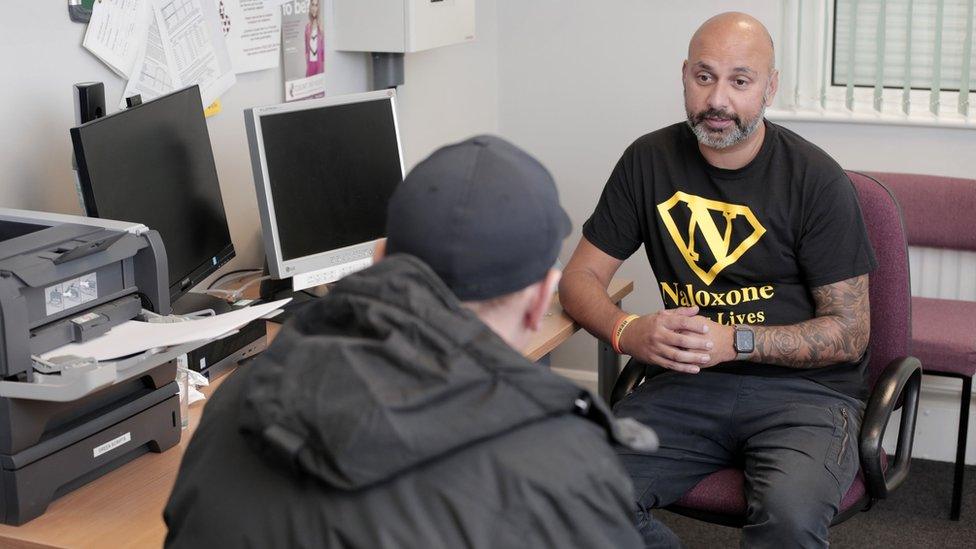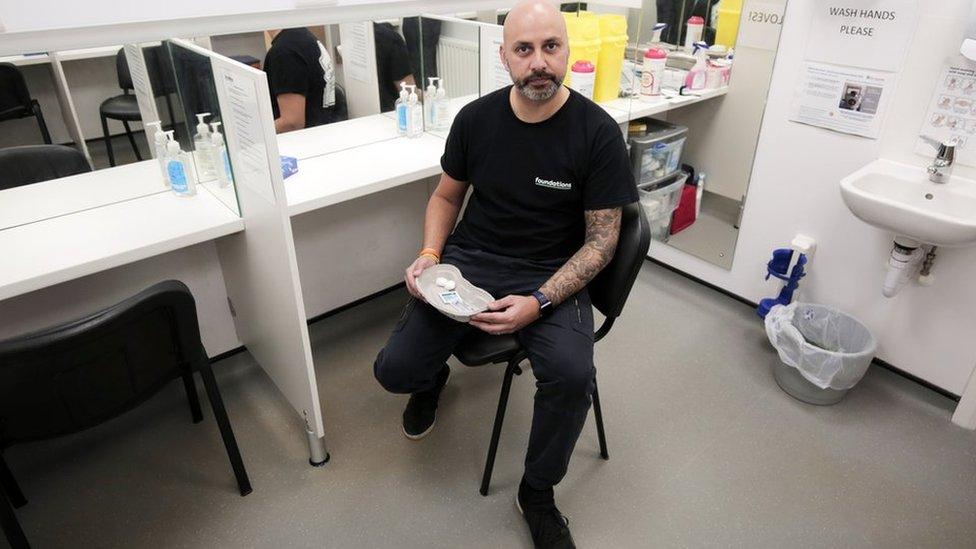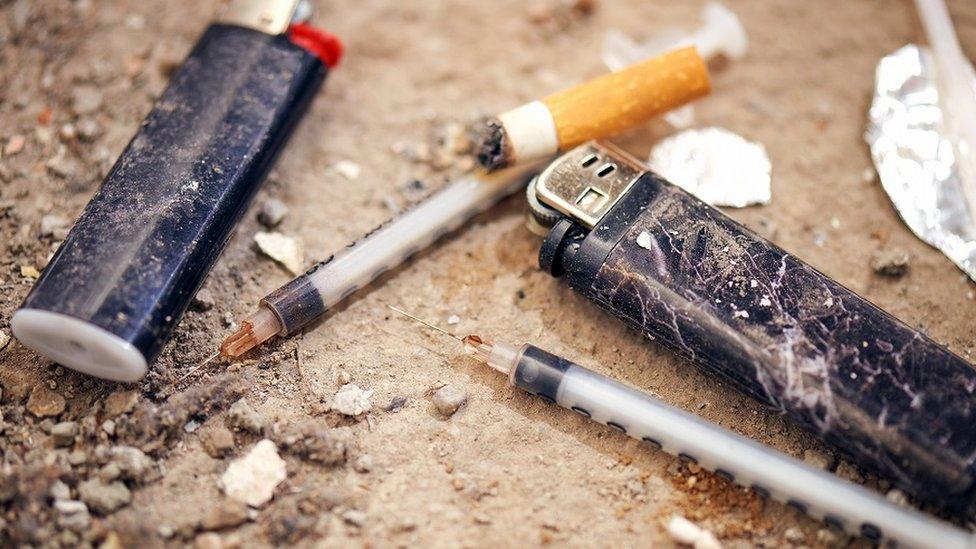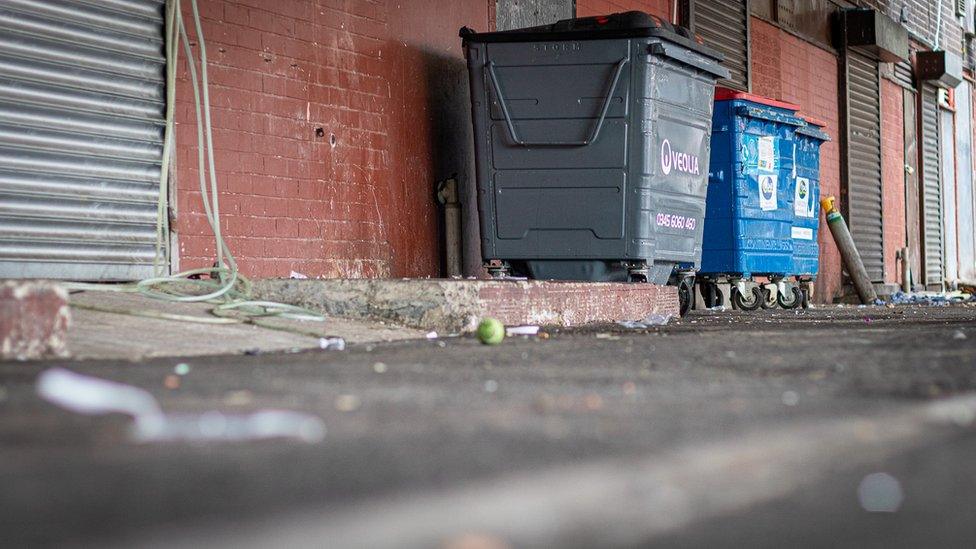Middlesbrough heroin injection scheme hailed a success
- Published

Clinical lead Daniel Ahmed describes the project as a smart option, not a soft one
A pilot scheme which gives supervised diamorphine injections to heroin addicts has been hailed as a success by those behind it, one year on.
The programme, based in Middlesbrough, focuses on high-risk addicts who are committing crimes to pay for drugs and for whom other treatments have failed.
Seven of the 14 who joined remain on the scheme, with a big improvement in their health and quality of life.
There has also been a vast reduction in their reoffending rates.
Heroin Assisted Treatment (HAT) was launched in October 2019, and is part-funded by the Cleveland Police and Crime Commissioner's office with cash seized from as the proceeds of crime.
'Social stability'
Clinical lead Daniel Ahmed said: "This is not a soft option, it's a smart option.
"What we are doing is following an evidence base that is producing results.
"These individuals have been involved in the criminal justice system and part of tough sentencing regimes during their lives and it has not been effective.
"That's had a dramatic impact on the local community in terms of reduction in crime, increase in social stability and a reduction in anti-social behaviour, so a real positive across the whole board."
One woman, an addict from the age of 21, said it meant she no longer had to go out shoplifting to fund her habit.
Another participant said it had "given him a focus" in life, which in the past "just revolved around drugs and hovered over them, that was it".
Of the seven no longer on the HAT, one left voluntarily, four stopped for medical reasons and two left after committing crime.

Follow BBC North East & Cumbria on Twitter, external, Facebook, external and Instagram, external. Send your story ideas to northeastandcumbria@bbc.co.uk, external.
- Published24 February 2020

- Published9 October 2019

- Published1 July 2019
